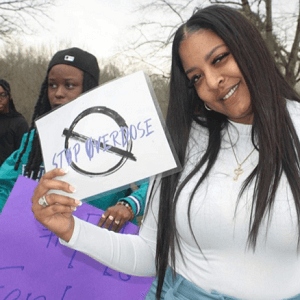A recent report reveals the severe impact of the opioid crisis on Black patients in North Carolina, highlighting significant barriers to care. Terica Carter, founder of Hajee House Harm Reduction, established the nonprofit after her son, Tahajee, died from an overdose of Percocet laced with fentanyl. Carter’s organization aims to address the critical gaps in resources and information about opioid overdose, substance use, and treatment within Black communities.
In Mecklenburg County, nearly 300 residents died from opioid overdoses in 2023, with Black individuals increasingly affected by the crisis. The introduction of fentanyl, a synthetic opioid much stronger than morphine, has led to a surge in overdose deaths among Black people. In 2021, Black residents in North Carolina died from overdoses at a rate of 38.5 per 100,000, more than double the rate in 2019.
Despite the growing need, resources and treatment options have not kept pace with the rising addiction and overdose rates among Black people. In 2019, white individuals accounted for 88% of those served by opioid prevention and treatment services funded by a federal grant, while Black people, who make up 24% of the state’s population, represented only 7.5% of those served.
Carter emphasizes the importance of community-based efforts to provide essential tools such as naloxone, fentanyl test strips, and recovery referral services. Her work underscores the need for targeted interventions to ensure equitable access to care and support for Black patients battling opioid addiction.
See: “Hit Hard by Opioid Crisis, Black Patients Further Hurt by Barriers to Care” (April 2, 2025)


